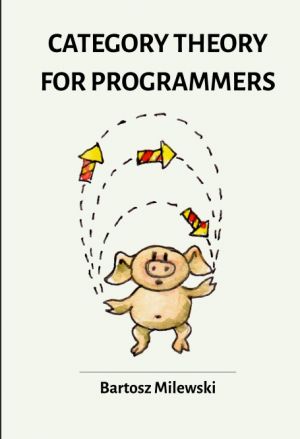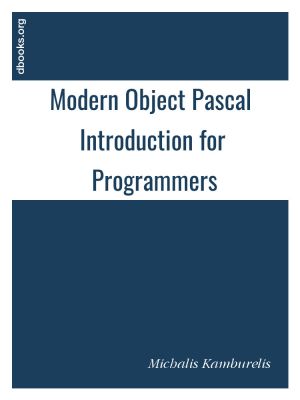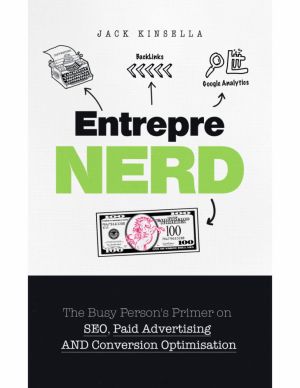Entreprenerd: Marketing Programmers
by Jack Kinsella
DescriptionTable of ContentsDetailsHashtagsReport an issue
The approach outlined in this book is one possible answer to this question. In a nutshell, the strategy is as follows: You will take out online advertisements and invest in SEO so as to inform relevant members of the public that you exist. Thanks to the potency of these measures, a steady stream of promising leads will arrive to your website. Here, you will apply the psychological tactics of conversion optimisation and copywriting to convince these leads to place orders, download your music, or whatever it is you want them to do. Following their conversion, you will send these past customers automated emails and display remarketing ads so as to keep them coming back to you again and again. Meanwhile, throughout every stage of this process, you will study reports in Google Analytics to discover which particular marketing measures brought you the highest profits. So as not to be fooled by randomness, you will apply statistical significance testing, thereby ensuring that any confidence you have in your marketing conclusions is justified. 






Book Description
A modern web-marketing book that outlines a multi-modal system for growing a website with SEO, Google AdWords/Facebook Ads, Conversion Optimisation, Copywriting/Classic Persuasion/Behavioural Psychology, Google Analytics, Statistical Significance, Email Marketing, and Remarketing. When I launched my first web application it started off with zero traffic. This obviously was not satisfactory so I started a private Berlin-based marketing group with local marketing consultants and tech company owners. During these sessions, I was privy to tactics from marketers working with companies like Goldman Sachs, Amazon Audible, Delivery Hero, ResearchGate, etc. To balance things out, I also conferred with people active in the darker side of internet marketing, like guys running shady coupon sites or selling fitness ebooks. This book is the product of what I learned from these sessions and my own experiments.The approach outlined in this book is one possible answer to this question. In a nutshell, the strategy is as follows: You will take out online advertisements and invest in SEO so as to inform relevant members of the public that you exist. Thanks to the potency of these measures, a steady stream of promising leads will arrive to your website. Here, you will apply the psychological tactics of conversion optimisation and copywriting to convince these leads to place orders, download your music, or whatever it is you want them to do. Following their conversion, you will send these past customers automated emails and display remarketing ads so as to keep them coming back to you again and again. Meanwhile, throughout every stage of this process, you will study reports in Google Analytics to discover which particular marketing measures brought you the highest profits. So as not to be fooled by randomness, you will apply statistical significance testing, thereby ensuring that any confidence you have in your marketing conclusions is justified.
This open book is licensed under a Creative Commons License (CC BY). You can download Entreprenerd: Marketing
Table of Contents
Chapter 1
Introduction
Chapter 2
Intro to SEO
Chapter 3
SEO: First Steps
Chapter 4
SEO on Each Individual Page
Chapter 5
SEO at the Whole-Website Level
Chapter 6
SEO by Mitigating Duplicate Content Issues
Chapter 7
SEO in Image Search
Chapter 8
SEO Through Backlinks
Chapter 9
SEO Vis-à-Vis Social Media
Chapter 10
SEO and Internationalisation
Chapter 11
Copywriting
Chapter 12
Google Analytics
Chapter 13
Conversion Optimisation
Chapter 14
Statistical (In)Significance
Chapter 15
Email Marketing
Chapter 16
Introduction to Paid Advertising
Chapter 17
Paid Advertising: First Steps
Chapter 18
Paid Advertising: Staying Organised
Chapter 19
Paid Advertising: Targeting
Chapter 20
Paid Advertising: Ad Creatives
Chapter 21
Paid Advertising: Strategic Principles
Chapter 22
Paid Advertising: Debugging and Optimisation
Book Details
Title
Entreprenerd: Marketing Programmers
Subject
Computer Science
Publisher
Self-publishing
Published
2016
Pages
301
Edition
1
Language
English
PDF Size
5.0 MB
License

Related Books

In a world where web services can make real-time data accessible to anyone, how can the government leverage this openness to improve its operations and increase citizen participation and awareness? Through a collection of essays and case studies, leading visionaries and practitioners both inside and outside of government share their ideas on how to...

Category Theory is one of the most abstract branches of mathematics. It is usually taught to graduate students after they have mastered several other branches of mathematics, like algebra, topology, and group theory. It might, therefore, come as a shock that the basic concepts of category theory can be explained in relatively simple terms to anybod...

Online communities provide a wide range of opportunities for supporting a cause, marketing a product or service, or building open source software. The Art of Community helps you recruit members, motivate them, and manage them as active participants. Author Jono Bacon offers experiences and observations from his 14-year effort to build and manage co...

There are many books and resources about Pascal out there, but too many of themtalk about the old Pascal, without classes, units or generics.
So I wrote this quick introduction to what I call modern Object Pascal. Most of theprogrammers using it don't really call it "modern Object Pascal", we just call it "ourPascal". Bu...

The GNU Debugger allows you to see what is going on "inside" a program while it executes - or what a program was doing at the moment it crashed. GDB supports C, C++, Java, Fortran and Assembly among other languages; it is also designed to work closely with the GNU Compiler Collection (GCC). The GNU Debugger Program has four special featur...

This free book explores the fundamentals of computer music and functional programming through the Haskell programming language. Functional programming is typically considered difficult to learn. This introduction in the context of creating music will allow students and professionals with a musical inclination to leverage their experience to help un...

